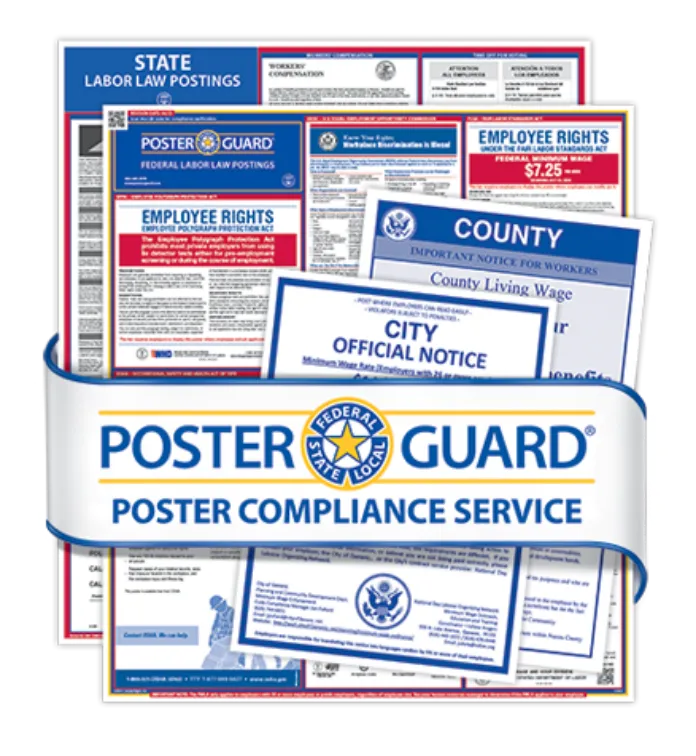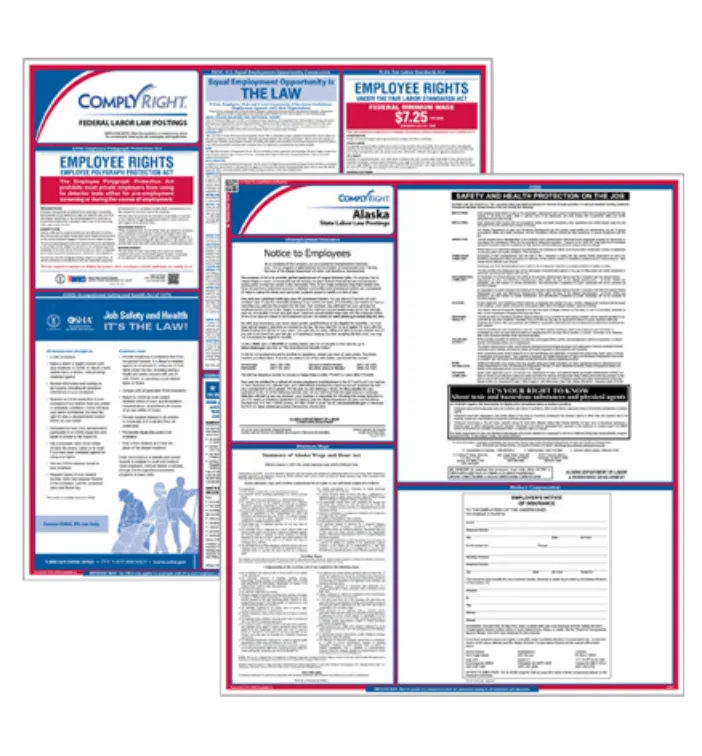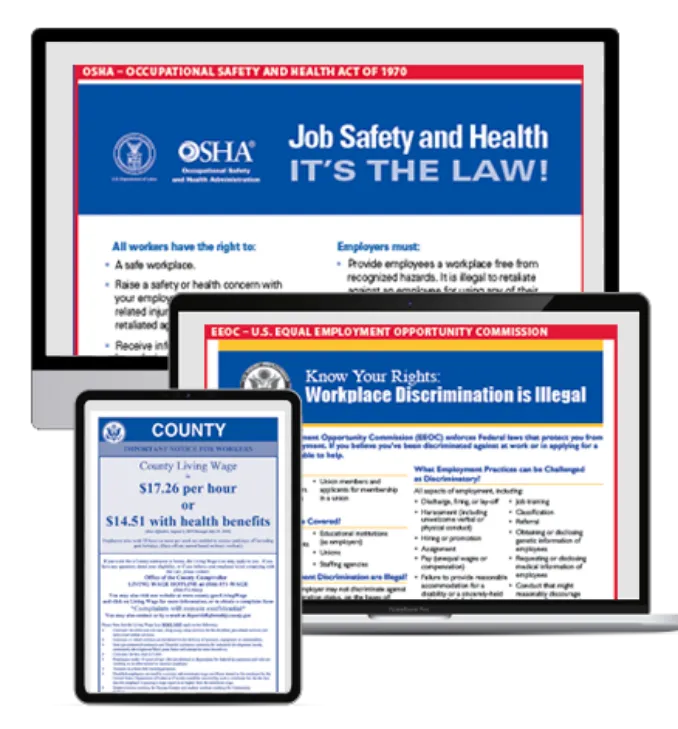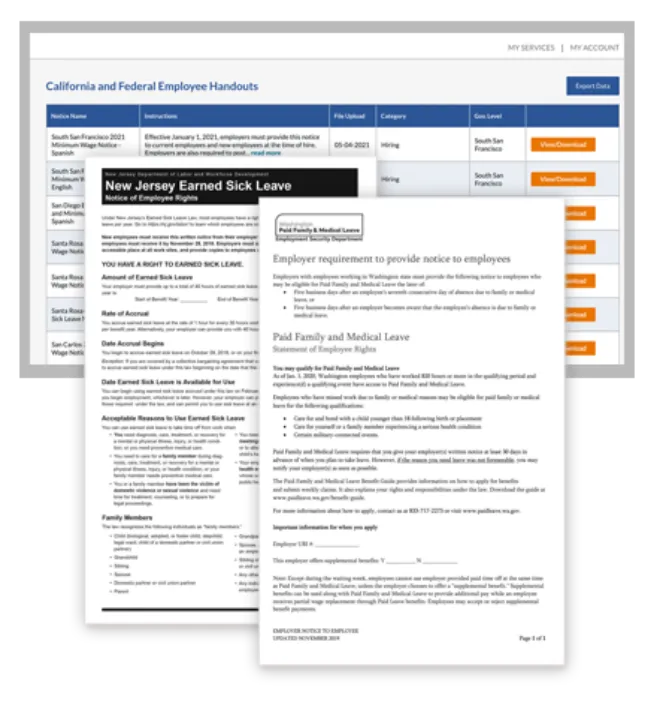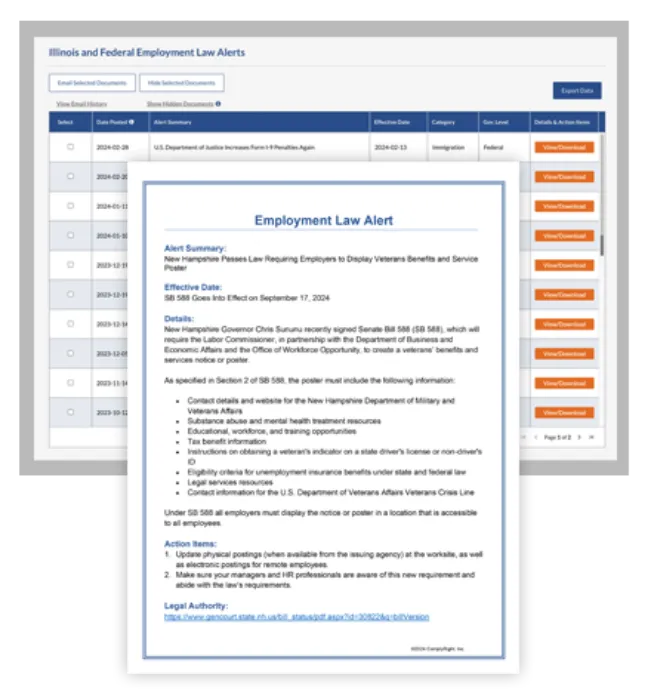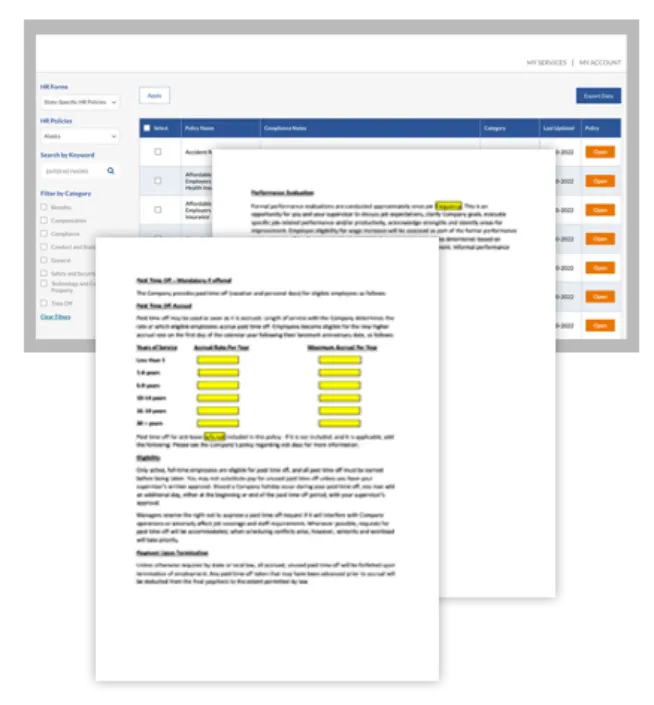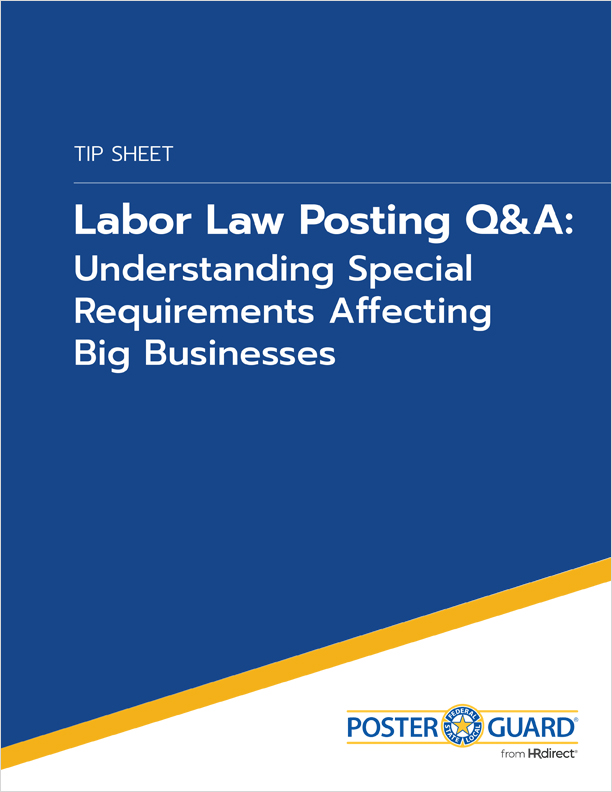In this time of heightened government enforcement and growing employment lawsuits, anything short of total labor law compliance is risky. For businesses of all sizes and types, this includes displaying the latest, mandatory labor law postings – one of the simplest yet often overlooked aspects of compliance.
Federal law requires most employers to post these six employee notices:
- U.S. Equal Employment Opportunity Commission (EEOC)
- Employee Polygraph Protection Act (EPPA)
- Fair Labor Standards Act (FLSA)
- Family and Medical Leave Act (FMLA)
- Occupational Safety and Health Act (OSHA)
- Uniformed Services Employment and Reemployment Rights Act (USERRA)
State laws require multiple employee postings, as well. Depending on your state, this could mean up to 19 additional postings per state, for a total of 25 state and federal postings at each posting site. (In fact, there are 175 federal/state agencies responsible for issuing more than 400 posters, with as many as nine different agencies per state.) Your posting obligations may increase even further if you operate in certain cities or counties, or within specific industries, such as healthcare and food service.
Failure to comply with labor law posting requirements could lead to citations and fines during a government inspection or audit.
How Your Company Could Become the Subject of an Audit
Understanding your posting obligations is one thing, but how big of a concern is an audit or inspection? Bigger than you may realize. You could become the subject of an audit if a current or former employee files a complaint with the Department of Labor (DOL), which may result in further action and an employment lawsuit.
The DOL may also target certain industries in a more sweeping investigation, like reviewing businesses that intentionally misclassify employees to avoid paying overtime or extending certain benefits. The same is true with OSHA violations: the DOL might come knocking at your door to investigate a safety complaint, or if your business is part of a broader investigation of industry-specific safety concerns.
The Role of Labor Law Postings in an Audit
You may wonder how your labor law postings come into play in an audit or inspection. Basically, they are your first line of defense against government fines and potential employee lawsuits. The FMLA, for example, specifies, “Failure to follow the notice requirements … may constitute an interference with, restraint or denial of the exercise of an employee’s FMLA rights.” Similarly, OSHA regulations demand that employers display the appropriate “job safety and health” posting in an area frequented by employees. By conspicuously posting all required notices, you’re not only upholding your compliance obligations, but you’re also ensuring that your employees are informed of their workplace rights, as specified under federal and state laws.
Equally important as maintaining posting compliance is adhering to mandatory handout requirements. Numerous federal, state, county and city employment laws require employers to distribute written notifications directly to employees. And just like workplace postings, the notices vary from state to state, change frequently and must be managed correctly to avoid financial and legal risks.
What Are the Risks of Labor Law Posting Noncompliance?
Failure to comply with labor law posting requirements could lead to devastating citations and fines in an audit or inspection. At the federal level, fines for posting violations can be more than $38,000per location. On the state and local level, the fines are typically between $100 and $1,000 per violation. (Each individual posting carries its own fines because every agency and posting law is different.)
The situation could be more severe, and costly, if an employee files a lawsuit related to his or her workplace rights. In a discrimination or fair pay case, for example, failing to post could erode your “good faith” defense. It could even extend the statute of limitations for time-barred claims, resulting in higher damages and a longer recovery period for back wages.
Depending on the type of investigation, an auditor will most likely dig deeper and review your company’s employment handbook, training materials and employee records.
Steps You Can Take to Ensure Compliance
To remain up to date and legally compliant, you should:
- Understand applicable federal, state and local employment laws, monitor posting changes and satisfy all requirements as they pertain to your workplace
- Conduct a self-review at least twice a year to verify you’re displaying the latest postings
- Explore a labor law poster service to receive automatic replacement posters every time a mandatory change occurs
Buffer Your Business from the Risk of Noncompliance
In any given year, nearly half of all federal and state posting changes are considered mandatory, requiring either new postings or replacement of outdated ones. Keeping up with these changes can be time-consuming and complex.
Fortunately, you don’t have to bear this burden. You can easily manage this fast-growing compliance responsibility with Poster Guard® Compliance Protection from HRdirect. You’ll receive an up-to-date federal, state and local poster set, along with free, automatic poster replacements every time a mandatory change occurs. To comply with mandatory employee notification requirements, you can also take advantage of the Mandatory Employee Handout Service from HRdirect. Developed by the same legal experts behind Poster Guard Compliance Protection, this service is available in two levels — Basic for federal and state-level notices and Premium for these same notices PLUS county, city and event-triggered notices. Both solutions ensure complete, year-round compliance.

